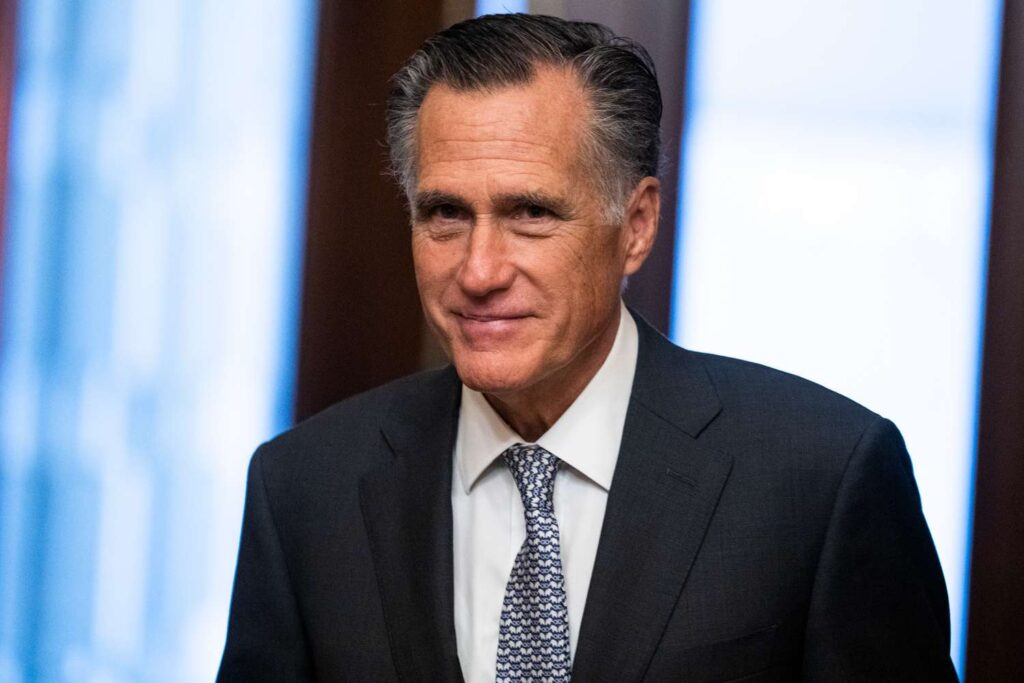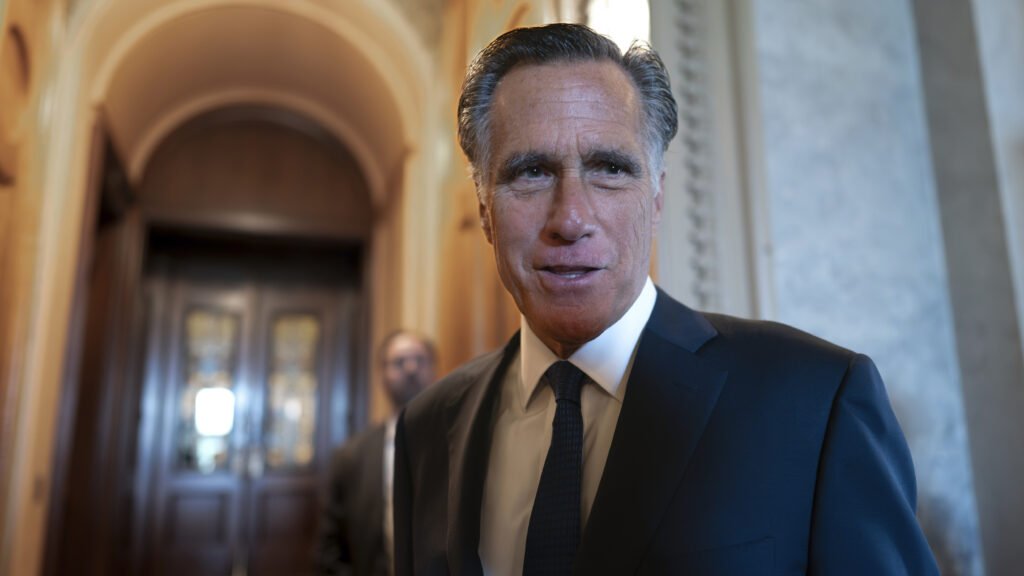Table of Contents
Introduction
Utah Republican Senator Mitt Romney, a prominent figure in American politics for two decades, has announced that he will not seek re-election. This decision marks the end of a remarkable political journey that included a run for the presidency in 2012 and a term as Massachusetts governor. In this article, we’ll delve into the highlights of Mitt Romney’s career, the reasons behind his retirement, and the potential impact on the Republican Party.

Early Life and Political Ascent Of Mitt Romney
Mitt Romney, born in 1947, has had a long and storied political career. He served as the governor of Massachusetts from 2003 to 2007, during which time he signed a healthcare law that bore similarities to the Affordable Care Act signed by President Barack Obama in 2010. His governorship was marked by attempts to bridge the gap between his state’s liberal policies and his own conservative values.
The 2012 Presidential Run
In 2012, Mitt Romney clinched the Republican nomination for the presidency. His campaign saw him traverse the nation, presenting himself as a traditional Republican with a background in private equity and a buttoned-up demeanor. However, the rise of Donald Trump, with his populist appeal, would later redefine the Republican landscape.
A Shifting Republican Landscape
As Trump gained dominance within the Republican Party, Romney’s brand of Republicanism shifted from the establishment to the outlier. He notably became the sole Republican in Congress to vote for Trump’s conviction in both of his impeachment trials. In a news conference, Romney positioned himself as part of the “wise wing” of the Republican Party focused on policy, while contrasting it with the “Trump wing,” which he claimed was fixated on resentments and score-settling.
The Call for a Younger Generation
In his announcement, Romney emphasized the need for a younger generation of leaders in American politics. He encouraged both Democratic President Joe Biden and Republican former President Donald Trump, who are both in their 70s, to step aside. Romney believes that the complex challenges of our times require fresh perspectives and a new set of leaders.
Post-Retirement Plans
Following his retirement from the Senate, Mitt Romney intends to focus on engaging young people in the political process and encouraging their participation in voting. His commitment to civic engagement underscores his belief in the importance of nurturing the next generation of leaders.

Impact on the Republican Party
Romney’s departure leaves a significant void in Utah politics. While he easily won the Senate seat in 2018, his frequent disagreements with Trump and his votes for impeachment marked him as an outlier within the party. The race for his successor is expected to be fiercely contested, given Utah’s predominantly Republican landscape.
Conclusion
Mitt Romney’s decision not to seek re-election brings an end to an influential political career that spanned two decades. His willingness to break with party lines and his calls for a younger generation of leaders reflect the changing dynamics within the Republican Party. As Utah prepares for a new era in its politics, the legacy of Mitt Romney will continue to influence the state’s political landscape for years to come.
FAQs
1. Why did Mitt Romney decide not to seek re-election? Mitt Romney cited the need for a younger generation of leaders in American politics as the primary reason for his decision to retire from the Senate.
2. How did Mitt Romney’s political career evolve over the years? Romney served as the governor of Massachusetts and later became the Republican nominee for president in 2012. However, his political stance evolved as the Republican Party shifted with the rise of Donald Trump.
3. What impact will Mitt Romney’s retirement have on Utah politics? Romney’s departure creates an open contest in a predominantly Republican state, with potential successors vying for his seat.
4. How did Mitt Romney’s votes during Trump’s impeachment trials affect his standing in the Republican Party? Romney’s votes to convict Trump in both impeachment trials marked him as an outlier within the party, leading to some backlash from fellow Republicans.
5. What are Mitt Romney’s post-retirement plans? After retiring from the Senate, Mitt Romney plans to focus on engaging young people in the political process and encouraging their participation in voting.
